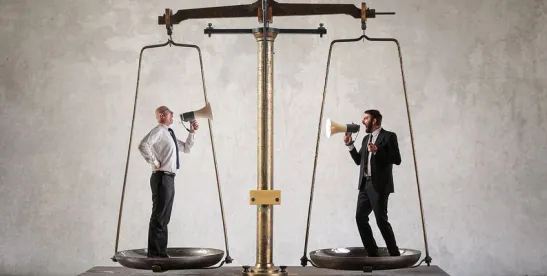People assume that just because a lawsuit is filed it has merit. That is completely untrue.
Many times litigators will file suit and change their story to try to match whatever a defendant’s records may show in the hopes of backing into a valid claim.
That appears to be precisely what happened in the case of Johnstone v. CrossCountry Mortgage, 2025 WL 89997 (N.D. Oh. Jan 14, 2025) and the Court absolutely did not let the Plaintiffs get away with it.
In Johnstone the plaintiffs (mother and daughter) had received two calls from CrossCountry. They swore up and down that the second call was prerecorded. But when the defendant’s records came out it turned out that the second call could not have been prerecorded. But the first call might have been. They tried to change their story but the Court shot them down.
Beautiful to see!
But let’s dive a bit deeper into the facts here because the background here is interesting and because there are a lot of familiar names involved.
First, the case arose out of third-party leads CrossCountry had purchased from iLeads. The lead form was filled out in the name of Julie Johnson but, allegedly, that was not the owner of the phone number—instead the phone number was owned by Linda Johnstone’s daughter (who is apparently underage and sued through her mother.)
The calls were made using Five9 but CrossCountry deletes everything out of Five9 every 60 days—generally not advisable. Still remnants of data existed—including whether calls involved an “IVR path” indicating a prerecorded voice was played on the call. Importantly even live calls might involve an IVR path with Five9—such as where an abandoned call took place. In those instances a prerecorded voice would play to the consumer as required by the TCPA’s abandoned call CFR provision.
There were two calls potentially at issue—one on March 2, 2022 and one on March 8, 2022. The March 2, 2022 had an IVR path and referenced a “voicemail.” The March 8, 2022 call had no IVR path associated.
Interestingly, however, the operative complaint identified only the March 8, 2022 call as prerecorded—it did not allege the March 2, 2022 call was. Discovery responses by the Plaintiffs—including deposition testimony—were in accord.
Defendant moved for summary judgment arguing no evidence existed that the March 8, 2022 call—the only call alleged to have been prerecorded—was actually prerecorded. This is true because of the lack of data in the IVR path from the Five9 record. And despite their previous testimony, the Plaintiffs actually conceded the point—apparently admitting in response to the motion that a live agent must have come on the line. As a result, the Defendant was granted summary judgment on the March 8, 2022 call.
That just leaves the March 2, 2022 call. Here there was evidence a prerecorded message was left—the IVR path indicated a prerecorded voicemail had been dropped that day. But the Court categorically forbade Plaintiffs from expanding their claim to include the March 2, 2022 call: “Plaintiffs may not expand their claims in opposition to summary judgment.” Because Plaintiffs had alleged the March 8—and not the March 2—call was prerecorded the Court threw out the entire claim! This is true even though the March 2, 2022 call may have actually been prerecorded!
So just like that the Court threw out the case—including casting out the plaintiff’s certification effort and granting defendant judgment!
Obviously this is a beautiful (and correct) outcome in this one. But there are some takeaways:
- Notice how TCPA litigation is being driven by prerecorded calls. Plaintiffs did not attempt to argue Five9 was an ATDS—their entire focus was on prerecorded calls;
- The fact that abandoned calls may lead to TCPA risk on a prerecorded call theory is something companies often overlook. If you are using prerecorded messages on abandoned calls you are creating risk for yourself—and since the CFR requires you to play such a message you need to aim for zero abandonment if you lack prior express written consent;
- Most importantly—don’t let the Plaintiffs get away with changing their story. This case probably would have come out differently if the Plaintiffs had avoided false testimony in the first instance and never incorrectly claimed the March 8, 2022 call was prerecorded. Indeed they would have been better served simply arguing Five9’s records were wrong. But because they decided to change their stories the Court tossed their case.
Last thing to keep in mind—there were a mere two calls at issue in this case but because it was a putative class action Defendant was facing potential exposure for every call they had placed over the last four years. The exposure here may have been tens or even hundreds of millions of dollars. This victory is a massive one for Defendant in a high-risk case.
And if you are facing a TCPA class action like this one DO NOT UNDERESTIMATE IT. Just because one or two calls may have been made to the named plaintiff does NOT mean it’s a small case—ultimately every TCPA class action is a bet the company case and needs to be litigated that way. The exposure in these cases is just too massive.




 />i
/>i
